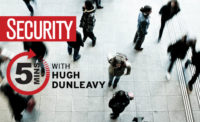The vast majority of business travelers feel their companies take duty of care seriously, yet access to various risk management services is far from universal, according to research from the GBTA Foundation, the education and research arm of the Global Business Travel Association.
Roughly one-third of German, French and UK business travelers say their organization does not provide an assistance hotline to call in an emergency or unexpected event – one of the most basic services available.
The study, Travel Booking Behaviour Impacts on Safety, conducted in partnership with Concur, also revealed that about one-half of business travelers agree that not booking through company channels can impact their safety by making it more difficult for their company to locate or contact them in an emergency. Despite this, more than three in five travelers have booked outside of their company channels at least once in the past year even when they had access to an Online Book Tool (OBT).
Additionally, fewer than two in five travelers say their organization has a system in place to capture their travel plans when they book directly with a supplier and many business travelers say that the only way for their organization to know where they traveled is through their expense reports.
“Booking data plays a key role in duty of care – enabling virtually every risk management function that companies perform,” said Monica Sanchez, director of research for the GBTA Foundation. “Many companies use booking data to send travelers alerts about their destination, to locate them in an emergency, to brief first-time or infrequent travelers about assistance resources available and to flag high-risk trips to ensure proper vetting. Missing or incomplete data can greatly hinder a travel manager or TMC from meeting their duty of care responsibilities.”
“During these times of global uncertainty, business leaders have a responsibility to know where employees are and keep them safe and informed,” said Scott Torrey, Chief Revenue Officer, Concur. “One of the most surprising results of the study is that half of business travelers know that not booking through company channels can affect their safety but a majority still book outside. This means that companies need to put a stronger focus on safety and I firmly believe duty of care is one of the most important things a business can do for its employees.”
In Case of an Emergency
A small majority of business travelers say their company provides travel advisories/notifications while a similar share say it provides travel health advisories. Travelers expect their companies to use a range of information to quickly locate them during an emergency or security event including travel itineraries (53 percent), GPS information from employer-provided smartphone apps (44 percent) and expense report information (32 percent). Fewer than three in five business travelers say their company provides SMS (text message) alerts when they are on the road.
At least two-thirds of travelers in each country would expect their company to proactively contact them within two hours of an emergency. While SMS and mobile apps can help companies reach larger numbers of travellers quickly, these are only useful when companies know where their travelers are and have up-to-date contact information.
Customized Safety Training
More than one-third of travelers believe they would have benefited from customised safety training or resources, based on personal characteristics such as gender, sexual orientation or religion in the past year. Similarly, almost half of business travelers would have benefited from training tailored to their destination.




